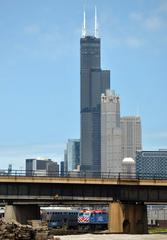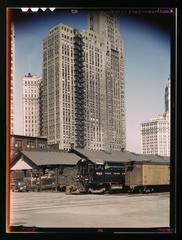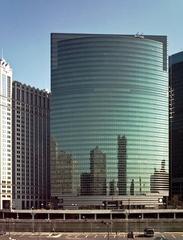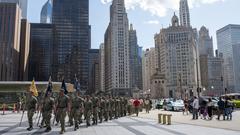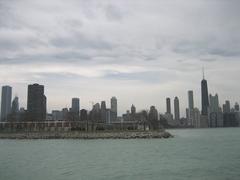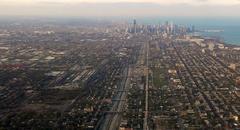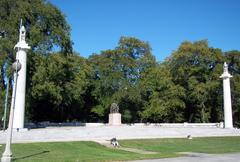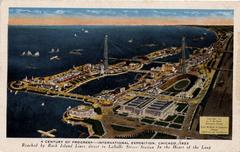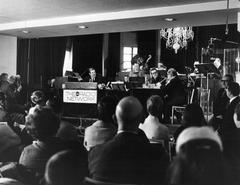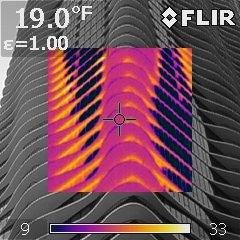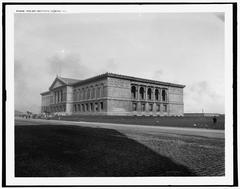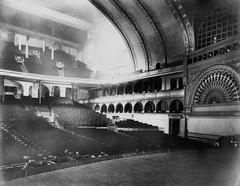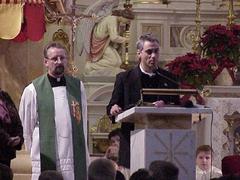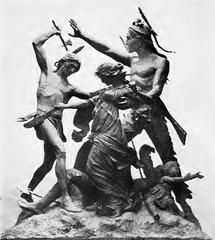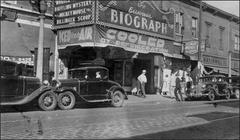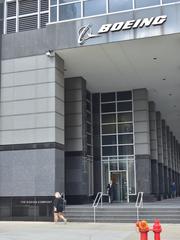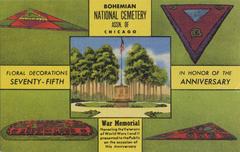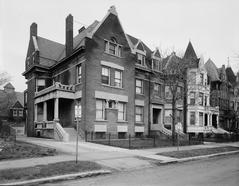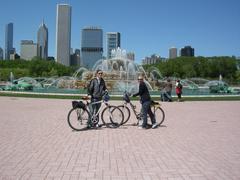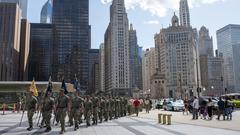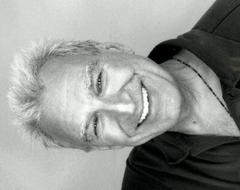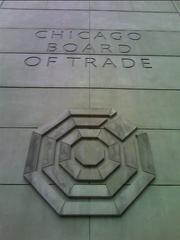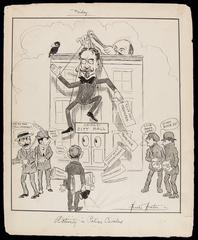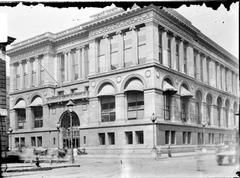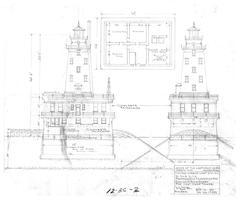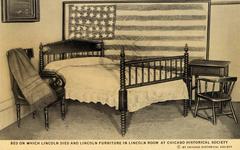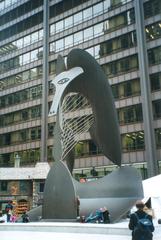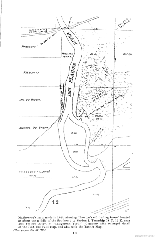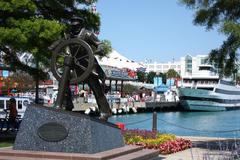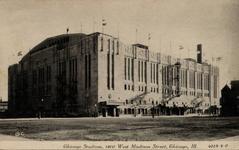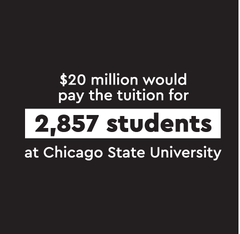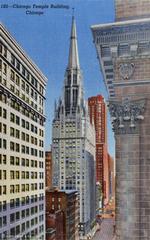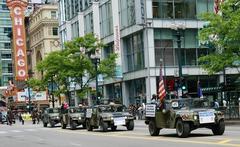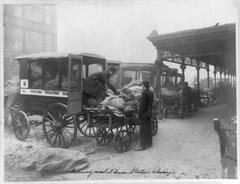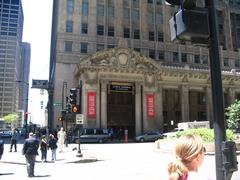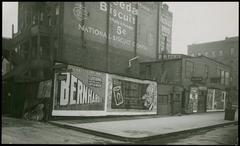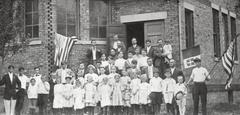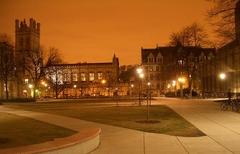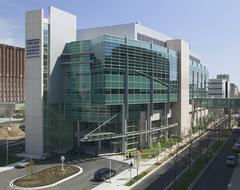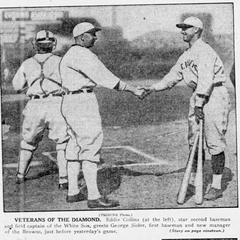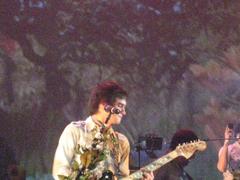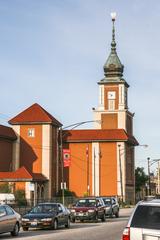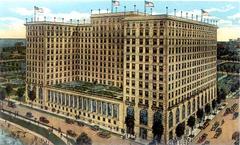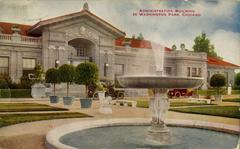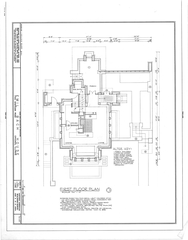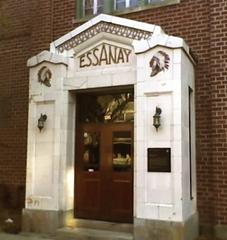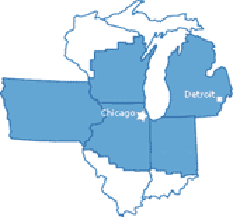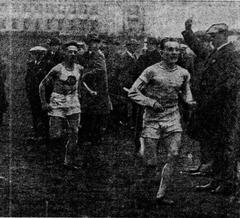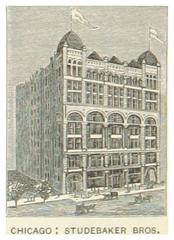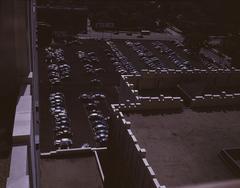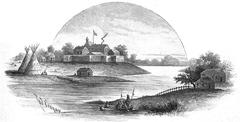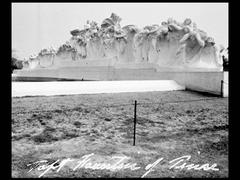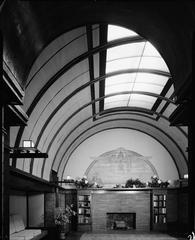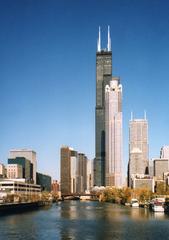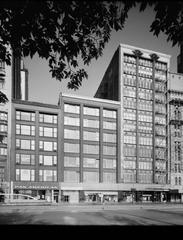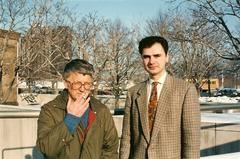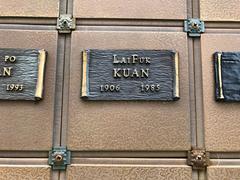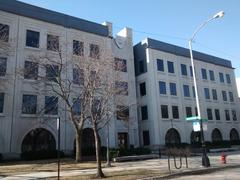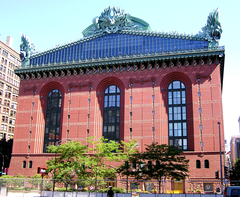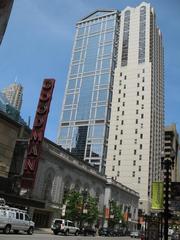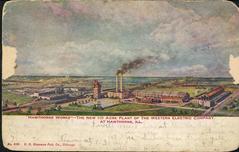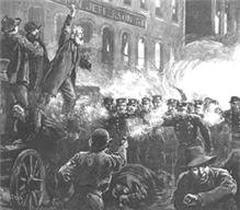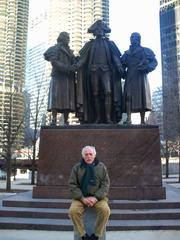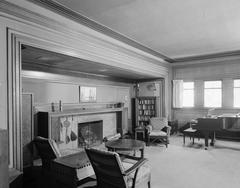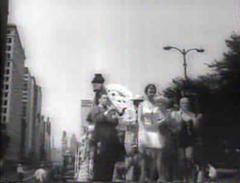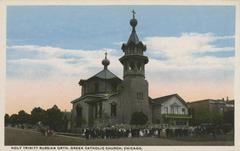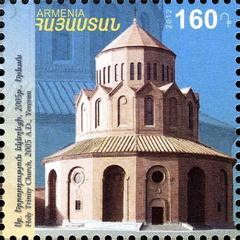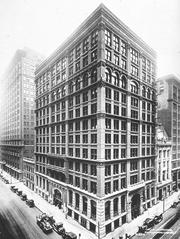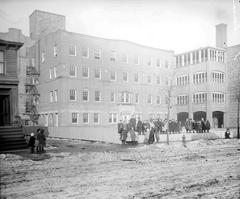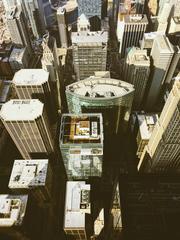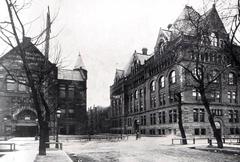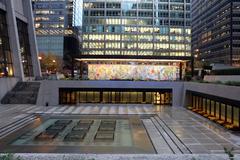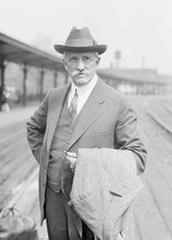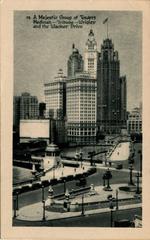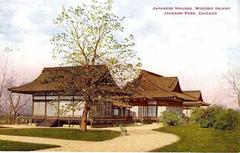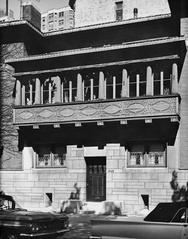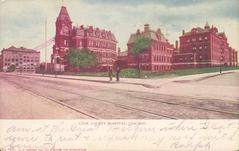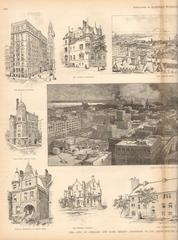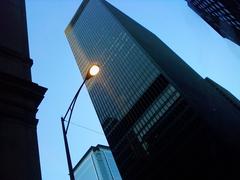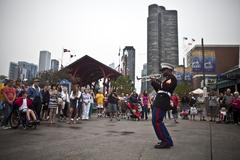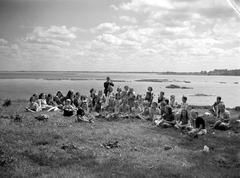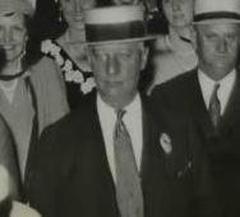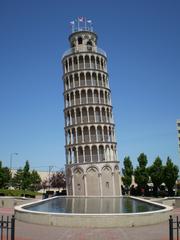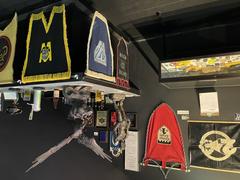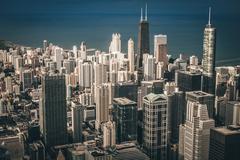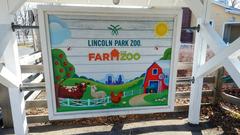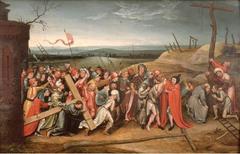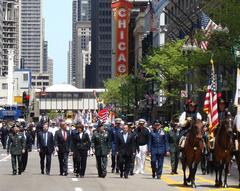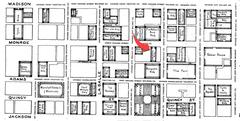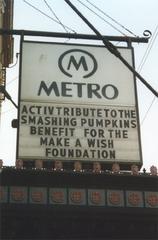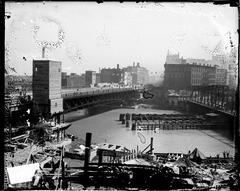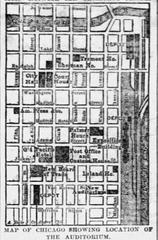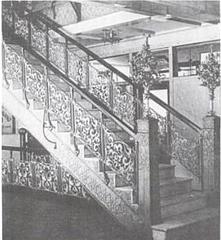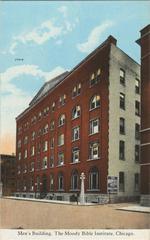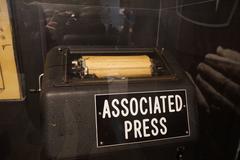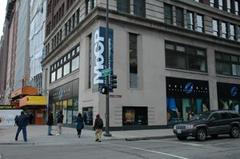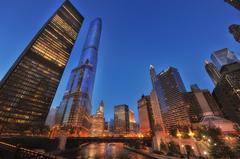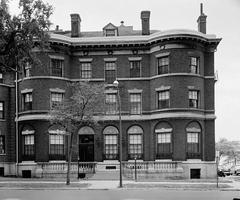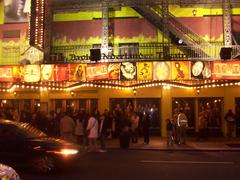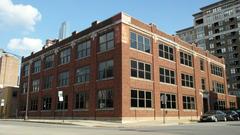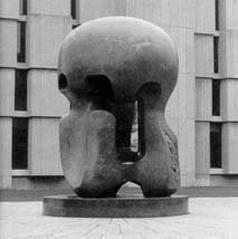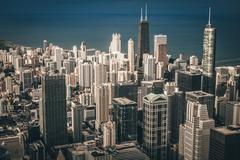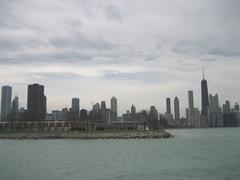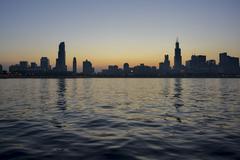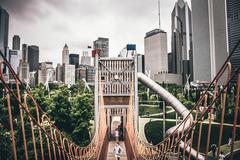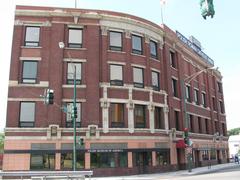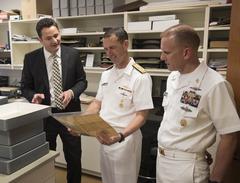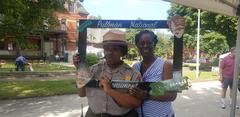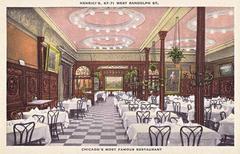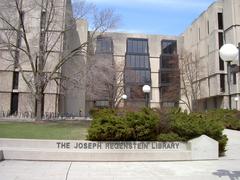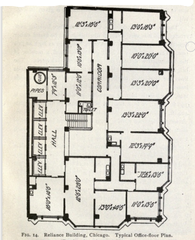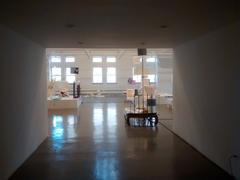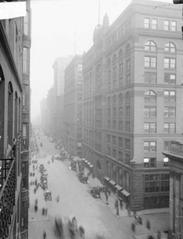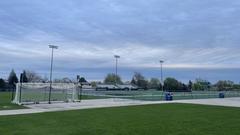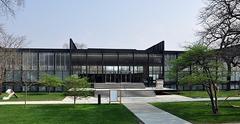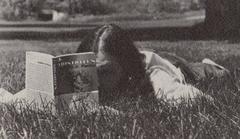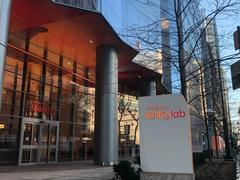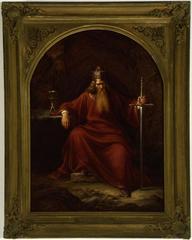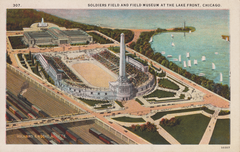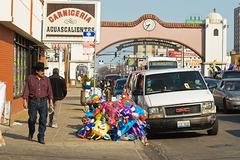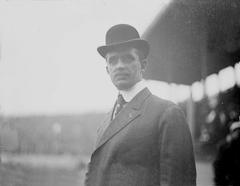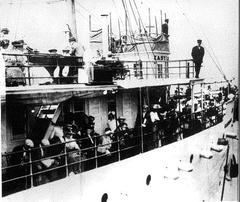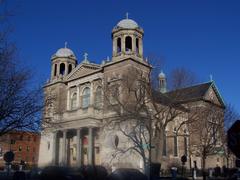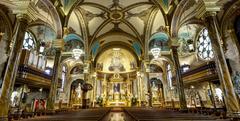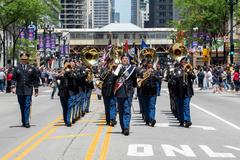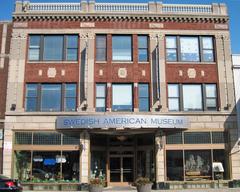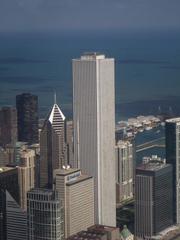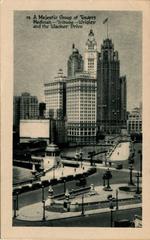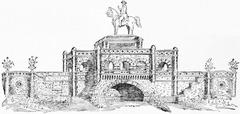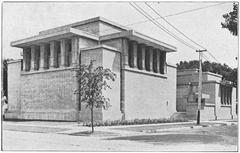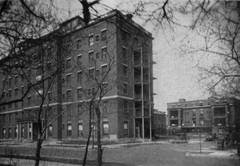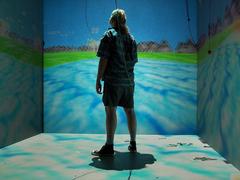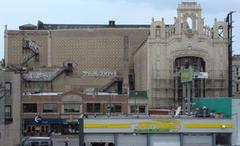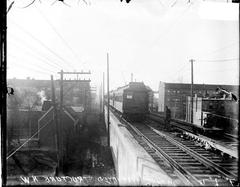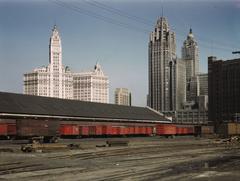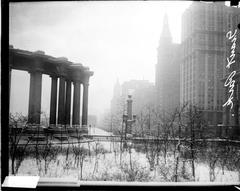
Emanuel Congregation Chicago: Visiting Hours, Tickets, and Historical Site Guide
Date: 04/07/2025
Introduction
Emanuel Congregation is a cornerstone of Jewish life and culture in Chicago, offering more than a century of history, architectural beauty, and vibrant community engagement. Founded in 1880 by German and Czechoslovakian immigrants, this Reform synagogue stands at 5959 N. Sheridan Road in the heart of the Edgewater neighborhood. Emanuel Congregation’s journey—from its early days in rented halls to the construction of its Modernist sanctuary—mirrors the broader story of Jewish adaptation and resilience in Chicago. Today, visitors are welcomed to explore its historic legacy, innovative architecture, and inclusive community programs (Emanuel Congregation History, Emanuel Congregation: Our Building).
Table of Contents
- Founding and Early Years (1880–1900)
- Transition to Reform Judaism and Expansion (1893–1920)
- Leadership and Community Influence (1907–1956)
- Relocation to Edgewater and Modernization (1940s–1950s)
- Social Engagement and Inclusivity (1955–Present)
- Architectural and Cultural Legacy
- Visitor Information: Hours, Tours, and Accessibility
- Special Events and Community Life
- Nearby Attractions and Travel Tips
- Frequently Asked Questions (FAQ)
- Contact Information
- Summary and Recommendations
- References
Founding and Early Years (1880–1900)
Emanuel Congregation was established in 1880 by 14 immigrant Jewish families, reflecting the growth and diversification of Chicago’s Jewish community (Emanuel Congregation History). Initially, the congregation met in rented spaces, with German as the language of worship and administration. The purchase of a Swedish church at 280 N. Franklin in 1886 provided the first permanent home, marking the beginning of a lasting community institution.
Transition to Reform Judaism and Expansion (1893–1920)
In 1893, Emanuel Congregation adopted Reform Jewish practices, including the use of the Einhorn Siddur Olath Tamid and worship with uncovered heads. The congregation merged with Or Chodosh in 1894, necessitating larger facilities. By 1907, the Buckingham Street synagogue was dedicated, symbolizing both religious and communal growth (Emanuel Congregation History).
Leadership and Community Influence (1907–1956)
Rabbi Felix A. Levy’s leadership from 1907 to 1956 shaped Emanuel’s trajectory, locally and nationally. Under his tenure, the congregation expanded, survived the Great Depression, and supported Jewish refugees during WWII. Rabbi Levy’s election as president of the Central Conference of American Rabbis underscored the congregation’s growing influence (Emanuel Congregation History).
Relocation to Edgewater and Modernization (1940s–1950s)
Outgrowing previous locations, Emanuel Congregation moved to Edgewater in the early 1950s. The new synagogue, completed in 1954, embraced Modernist design while meeting the needs of a thriving membership. Rabbi Herman E. Schaalman, a refugee from Nazi Germany, succeeded Rabbi Levy and further strengthened Emanuel’s reputation for leadership and innovation (Emanuel Congregation History).
Social Engagement and Inclusivity (1955–Present)
Emanuel Congregation has maintained a steadfast commitment to inclusivity and social justice. It has hosted the Chicago Jewish Day School, supported LGBTQ+ Jewish communities through its merger with Or Chadash, and actively engaged in social action initiatives. The congregation’s programming promotes diversity, community service, and interfaith dialogue (Emanuel Congregation History).
Architectural and Cultural Legacy
The current building at 5959 N. Sheridan Road is a notable example of mid-20th-century Modernist synagogue architecture (Emanuel Congregation: Our Building). Its sanctuary features flexible design elements, such as movable wall panels, fabric ceiling sails, and artist Edgar Miller’s Ark. Stained-glass windows and vintage panels from a Lawndale synagogue connect visitors to Chicago’s Jewish heritage (Wikipedia: Emanuel Congregation, Chicago Tribune).
Renovations in 2001 and 2013 enhanced the building’s functionality and aesthetics, including improved accessibility and panoramic views of Lake Michigan (Emanuel Congregation: Our Building). The sanctuary accommodates up to 1,000 people during High Holy Days and serves as a gathering place for worship, education, and cultural events.
Visitor Information: Hours, Tours, and Accessibility
Visiting Hours:
- Monday–Thursday: 9:00 AM – 4:00 PM
- Friday: 9:00 AM – 3:00 PM (services begin at 6:00 PM)
- Saturday: Services at 10:00 AM; building open until 2:00 PM
- Sunday: Closed
Check the official website or call ahead for special schedules during holidays and events.
Admission and Tickets:
- General admission is free.
- Guided tours are available by appointment; contact the office to schedule.
- Certain special events or educational programs may require prior registration or ticketing.
Accessibility:
- The synagogue is fully wheelchair accessible, with ramps, elevators, and accessible restrooms.
- Large-print prayer books and other accommodations are available upon request.
Parking and Transportation:
- On-site parking lot with scenic lake views is available.
- Easily accessible via CTA Red Line (Granville or Thorndale stations) and multiple bus routes.
- Bike racks are provided for cyclists.
Special Events and Community Life
Emanuel Congregation hosts a full calendar of religious, educational, and cultural events. These include:
- Shabbat and holiday services (Rosh Hashanah, Yom Kippur, Sukkot, Simchat Torah)
- Concerts, art exhibits, and film screenings
- Torah study, Hebrew classes, and community lectures
- Social justice initiatives and volunteer opportunities
Many events are open to the public. Check the events calendar for details.
Nearby Attractions and Travel Tips
Visitors can explore local sites such as:
- Edgewater Historical Society
- Loyola University Chicago campus
- Lake Michigan beaches and parks
- Andersonville historic district
- Swedish American Museum, Mayne Stage theater, and more
The neighborhood’s diverse dining, shopping, and cultural venues make Emanuel Congregation an ideal starting point for North Side exploration (Chamber of Commerce, Edgewater Chamber of Commerce).
Frequently Asked Questions (FAQ)
Q: What are the visiting hours?
A: Monday–Thursday, 9:00 AM–4:00 PM; Friday, 9:00 AM–3:00 PM; Saturday, services at 10:00 AM; closed Sunday. Confirm hours during holidays.
Q: Is there an admission fee?
A: No, visits and most events are free; some special programs may have a suggested donation or ticketing.
Q: Are guided tours available?
A: Yes, by appointment. Contact the office or visit the website for scheduling.
Q: Is the synagogue accessible?
A: Yes, fully accessible with ramps, elevators, and restrooms.
Q: Can I take photographs?
A: Photography is permitted in public areas; please request permission before photographing services or private functions.
Q: Is parking available?
A: Yes, on-site parking and bike racks are available; public transportation options are nearby.
Q: Does Emanuel offer virtual tours or online resources?
A: Check the website for virtual events, livestreams, and educational materials.
Contact Information
- Address: 5959 N Sheridan Rd, Chicago, IL 60660
- Phone: 773-561-5173
- Email: [email protected]
- Website: https://www.emanuelcong.org/
Advance inquiries are recommended for group visits, special accommodations, or event participation.
Summary and Recommendations
Emanuel Congregation is a living testament to Chicago’s Jewish heritage, resilience, and progressive values. Its architectural innovation, inclusive spirit, and commitment to education and social justice make it a must-visit landmark. Whether you seek spiritual enrichment, cultural exploration, or historical insight, Emanuel Congregation offers a warm welcome and a memorable experience.
For up-to-date information on services, tours, and events, consult the official website and consider using the Audiala app for curated guides and digital resources.
References
- Emanuel Congregation History (Emanuel Congregation History)
- Emanuel Congregation: Our Building (Emanuel Congregation: Our Building)
- Wikipedia: Emanuel Congregation (Wikipedia: Emanuel Congregation)
- Chicago Tribune: Reform Temples’ Modern Design Rooted in History (Chicago Tribune)
- Emanuel Congregation - Chamber of Commerce (Emanuel Congregation - Chamber of Commerce)
- Edgewater Chamber of Commerce (Edgewater Chamber of Commerce)

